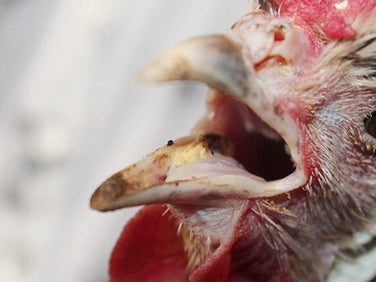
March 17, 2025
How Long Is a Dog Pregnant Before Giving Birth?
- huy tran
The gestation period in dogs typically lasts between 58 to 68 days, with an average of 63 days. However, this can vary depending on the breed, size, and individual health of the dog.
Signs of Pregnancy in Dogs

-
Behavioral Changes:
- Increased affection or clinginess toward the owner.
- Lethargy or reduced activity levels.
- Nesting behavior, such as seeking out quiet, comfortable areas.
-
Physical Changes:
- Enlarged or darkened nipples, often noticeable by the third or fourth week of pregnancy.
- Weight gain and abdominal enlargement, typically evident after 4–5 weeks.
- Increased appetite, especially in the second half of pregnancy.
- Clear vaginal discharge (mucous) around 30 days into gestation, which is normal unless accompanied by a foul odor or blood.
-
Veterinary Confirmation:
- Ultrasound: Can detect pregnancy as early as 21–25 days after mating.
- X-rays: Useful after 45 days to count the number of puppies.
- Hormone Testing: Measures relaxin levels, a hormone produced during pregnancy, to confirm gestation.
Signs Your Dog Is About to Give Birth

-
Drop in Body Temperature:
- A dog's normal body temperature ranges from 100.5°F to 102.5°F (38°C to 39.2°C). Approximately 12–24 hours before labor, this temperature will drop below 100°F (37.8°C). Monitoring this with a rectal thermometer is highly recommended.
-
Nesting Behavior:
- Your dog may start digging, rearranging bedding, or seeking a quiet, secluded area to prepare for delivery.
-
Physical Signs:
- Restlessness, panting, or pacing due to discomfort.
- Loss of appetite or refusal to eat as labor approaches.
- Visible contractions, often accompanied by straining or shivering.
- The appearance of a clear or slightly bloody vaginal discharge, indicating the start of labor.
-
Stages of Labor:
- Stage 1 (Preparation): Lasts 6–12 hours, characterized by restlessness, nesting, and mild contractions. The cervix begins to dilate.
- Stage 2 (Active Labor): Puppies are delivered, typically within 20–60 minutes of strong contractions. Each puppy is born in its amniotic sac, which the mother usually breaks open.
- Stage 3 (Placenta Delivery): The placenta is expelled after each puppy.Ensure all placentas are delivered to prevent complications.
Caring for a Pregnant Dog Nearing Delivery
Proper care during the final stages of pregnancy and delivery is vital to ensure the health of the mother and her puppies. Below are essential tips for caring for a pregnant dog as she approaches whelping:
-
Prepare a Whelping Area:
- Set up a quiet, warm, and comfortable whelping box in a low-traffic area of your home.
- Line the box with clean towels, blankets, or disposable bedding that can be easily replaced.
- Ensure the area is draft-free and maintained at a temperature of 75°F to 80°F (24°C to 27°C) to keep newborn puppies warm.
-
Nutrition:
- Feed a high-quality, nutrient-dense diet formulated for pregnant or nursing dogs. These diets are rich in protein, calcium, and calories to support the mother’s needs.
- Increase the frequency of meals (e.g., 3–4 small meals per day) as the pregnancy progresses, as the growing puppies may compress the stomach, reducing appetite per meal.
- Provide constant access to fresh, clean water.
-
Veterinary Monitoring:
- Schedule a pre-whelping veterinary visit to confirm the number of puppies and assess the mother’s health.
- Discuss potential complications, such as dystocia (difficult labor), and know when to seek emergency veterinary care.
- Have your veterinarian’s contact information and an emergency clinic number readily available.
-
Exercise:
- Encourage gentle exercise, such as short walks, to maintain muscle tone and prevent excessive weight gain.
- Avoid strenuous activities, especially in the final weeks, to prevent stress or injury.
-
Monitor for Complications:
- Watch for signs of distress, such as prolonged straining without delivering a puppy (more than 30–60 minutes), excessive bleeding, or extreme lethargy.
- If you suspect complications, contact your veterinarian immediately.




